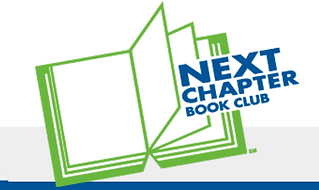Recognizing that folks were hungry for opportunities to learn new skills, we piloted a peer-to-peer professional development program (“Learning Circles”) at various Detroit Public Library branches. In partnership with Peer 2 Peer University (P2PU), we harnessed the city’s existing resources – namely, engaged librarians and dedicated citizens – to create spaces where community members could take free MOOCs (massive online open courses) to strengthen their professional development skills.
International
The mission of Next Chapter Book Club is to provide meaningful opportunities for lifelong-learning, social connections and authentic community inclusion for individuals with intellectual and developmental disabilities through weekly or bi-weekly community-based book club meetings that include readers of all skill levels.
"As a democratic and democratizing institution, libraries have a mission to connect the public with necessary information, as well as provide free and open access to the library for all citizens. As disadvantaged people such as homeless individuals, economically disadvantaged people, or those suffering from addiction or mental illness become a core user base for libraries, some libraries have begun programs to connect these people with needed social services, which ties in with librarianship’s value of promoting social justice."

The Section for Library Services to People with Special Needs provides an international forum for the discussion of ideas, sharing of experiences and development of tools designed to promote and improve the effectiveness of library and information services to special needs groups, and the promotion of national and international cooperation at all levels.
The section focuses on those persons who because of their living conditions and/or physical, mental or cognitive disabilities can not access current library services. These groups can include, but are not necessarily limited to, people in hospitals and prisons, homeless people, persons in nursing homes and other care facilities, the deaf and people with dyslexia and dementia
"There may be occasions where a LGBT teen comes to you in a crisis situation. LGBT teens are more likely to experience violence than their heterosexual peers and have higher rates of suicide and homelessness. Many also lack a good support network. “It’s important for librarians to remember that we don’t have to have the answer for every question that crosses our desks, but we do have to know where to find that answer. Make sure your librarians know what resources are available to your teens and tell them about those resources through signs in the restrooms, programs, word-of-mouth, or brochures.”
What this Toolkit is for:
The Creative Aging Toolkit for Public Libraries is a free, online resource for librarians. It offers access to information about aging and libraries, creative aging research, and best practices in the field. The toolkit contains insights, tips, tools and templates to be used when planning, implementing and sustaining successful programs.
The Outreach and Special Services Division identifies outreach opportunities and best practices for serving populations outside the library including institutionalized and disadvantaged groups, people with disabilities as well as seniors and children.
The IFLA Section for Library Services to People with Special Needs (LSN) focuses on those persons who, because of their living conditions and/or physical, mental, or cognitive disabilities, are unable to access current library services. Much in the same way, people experiencing homelessness face a series of barriers preventing them from obtaining equal access to library services due to their living conditions, poor mental and physical health, and prejudice. These guidelines have evolved from the work LSN has done to address these barriers. It should be noted that library services to refugees are included in these Guidelines. They face many of the same challenges as people experiencing homelessness.










